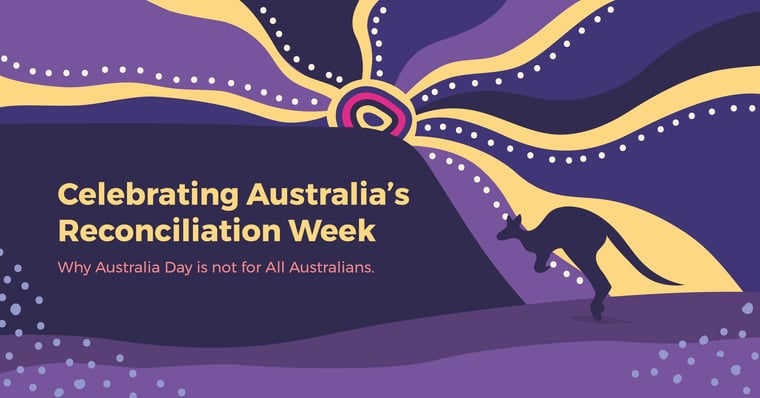
Why Australia Day is not for all Australians.
Australia has a reputation for being a laid-back nation. A country without a class system. Where everyone is welcome. It’s time to explode the myth.
Australia is not for all Australians. Not really.
Nowhere is our division more damaging than our national day. The perception is Australia Day is a time to head to the beach, throw a snag on a barbie, say ‘G’day’ to a mate and tuck into a Vegemite sandwich.
But under the surface, Australia Day has a dark past. 26 January marks a day of mourning for 800,000 Indigenous Australians and their millions of ancestors.
The story starts thousands of years ago
Indigenous Australians are the world’s oldest continuous civilisation. Older than the Ancient Egyptians, the Romans, the Greeks and the Aztecs. But while you may know the stories of Cleopatra or Julius Caesar, the culture and history of the Indigenous Australian tribes are rarely studied.
Why? Much of the non-Indigenous Australian population still haven’t come to terms with our nation’s brutal history. On 26 January 1788, when the British colonies invaded, there were approximately 750,000 First Nations people. By the 1920s, this number was down to 75,000.
Put simply, Australia Day is Invasion Day. It symbolises the beginning of a cultural genocide and the continual injustices Indigenous Australians face to this day.
Every 28 days, an Indigenous Australian dies in circumstances involving police.
Sound familiar? The tragic death of George Floyd in Minneapolis sparked the international Black Lives Matter movement. In Australia, this ground-swell demanding social justice is building momentum. And it comes into sharp focus in the last week of May.
27 May to 3 June is Australian National Reconciliation Week.
The dates are both significant:
- 27 May 1967. First Nations people are finally recognised in the Census as voted by over 90% of the population – Australia’s most one-sided referendum.
- 3 June 1992. The Australian High Court recognised Aboriginal and Torres Strait Islander peoples as traditional owners and custodians of the land.
2021 is the twentieth year Reconciliation Australia has run awareness events during this iconic week. Importantly, the 2021 theme is “More than a word. Reconciliation takes action.” As Reconciliation Australia puts it: “For reconciliation to be effective, it must involve truth-telling, and actively address issues of inequality, systemic racism and instances where the rights of Aboriginal and Torres Strait Islander peoples are ignored, denied or reduced.”
Despite Australia’s popularity globally, not enough people know about Reconciliation Week. So, even though it carries harsh truths for non-Indigenous Australians, it’s essential we all spread the word.
Transmission would like to acknowledge the traditional owners of the land on which Transmission Sydney operates – the Gadigal people of the Eora nation. We would also like to acknowledge the land on which Transmission Melbourne operates – the land of the Boon Wurrung and Wurundjeri people. We pay our respects to elders past and present.
Please join us in celebrating from 27 May to 3 June – not 26 January. Because Australia is, was and always will be Aboriginal land. But remember, you can still enjoy a Vegemite sandwich if you're bold enough!